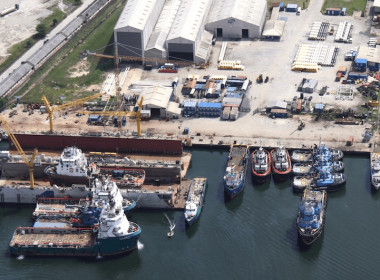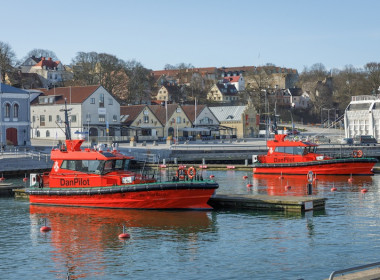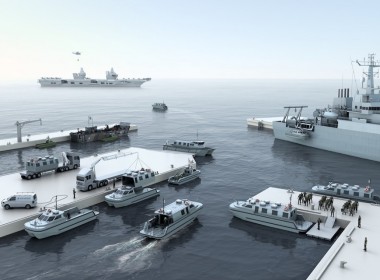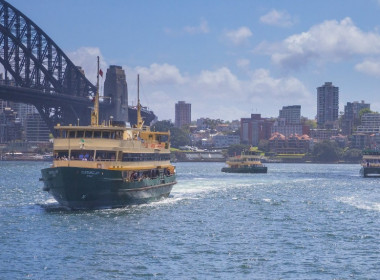Welcome to United Kingdom Week!

The last 18 months have been challenging operationally, it is understandable to say. The effects and mechanisms of Britain’s withdrawal from the European Union has (by Murphy’s Law) come at the same time as the world’s coronavirus pandemic.
There have been challenges faced by the whole sector regarding supply-chains and movement of skills across the EU as a result of both. In addition the slowing of the world’s travel services has led to the maritime sector being the “guinea pigs” of international travel here, whilst border forces juggle a new, Brexit-led, cross-border regulatory regime with only key workers using the borders.
A gift from God from what was sure to be a baptism-of-fire for the immigration teams, but quite the opposite for the Seafarers and associated vessel personnel who have been unduly detained at seaports and airports due to the respectful inexperience of the border staff.
More generally, UK Prime Minister Boris Johnson has stated that he wants the UK to become one of the world’s flagship maritime nations once more. If we were to simply run a tape-measure around the coastline of the UK mainland and its surrounding islands, we can clearly see that in terms of exposure we have one of the EU’s longest wet borders. It is, however, recognised internally that the UK is no longer on the podium of the world’s great shipbuilding nations, but there is much to be said about where UK focuses do lie. As well as still holding on to the world’s maritime “white collar” industries, Britain is a leader in specialist and small- to medium-size vessels.
Out of the 5,000+ Small Coded Vessels on the UK Shipping Register, over 2000 of those are workboats, and on nearly all of the EU’s major offshore and inshore construction and services projects (whether it be offshore energy, aquaculture, towage or subsea), you will see vessels flying the Red Ensign in large numbers.
Why? Well that is a good question…we know stereotypically that the small commercial vessel sector (in whichever country it is based) is normally under-represented politically. This is often due to the fact that, plutocratically speaking, the world measures its maritime importance by tonnage and not by numbers.
While many of the operators of small commercial vessels are small- to medium-size enterprises, the UK has been able to see the importance and opportunity that comes with a high market-share in this industry.
For example the make-up of the Workboat Association membership is split in four very obvious ways:
- One- or two-vessel owner/operators,
- Two- to less than ten-vessel owner/operators
- Ten- to 20-vessel owner/operators, and
- 20+ vessel owner/operators
We often don’t see companies stay within band C for a very long – normally, once companies grow to this size, the attractiveness of further investment, supported by their commercial track record, makes for a very positive business case!
This is contrary to popular European trends, which often see a large gap in the market between bands A and D. This, I believe, is one of the key successes of the UK’s workboat industry. Companies that fit in bands B and C hold some fantastic attributes that simply cannot be matched otherwise, including multiplying track records, growing competency and diverse skill sets, finance availability and charterer interest, and a small enough team to make timely decisions, but a large enough team to support stability and quality.
In 2019 the UK Government launched the “Maritime 2050: Clean Maritime Plan”, one of the world’s first roadmaps of its kind. Today, this plan (which now shows close synergies to other similar industry plans across Europe and the wider world), has become engrained in every commercial decision and breath we [the UK workboat sector] take.
Supply chains, from concept/feasibility to finance/demonstration, have accepted the challenge with great enthusiasm. Operators, supported by their charterers, are now actively investing further in this technology too.
In the past three years, the UK has seen a small number of future technology “industry ambassadors” leading the way with projects building electric-hybrid vessels, hydrogen technology vessels and vessels built with ultra-efficient hulls and apparatus.
More recently, groups have been set up to target decarbonisation head-on within the small vessel sector and this is now providing some more pressure behind the pipeline of available concepts, tested technology and fully-built lower-emission vessels.
Recent British highlights include:
- The first hybrid-powered surface effect ship (SES), built in the UK. The vessel combines a combination of modern diesel and electric power chains with the low-friction benefits of lifting the vessel’s hulls as high out of the water as possible whilst maintaining active situational stability.
- New industry interest from Americas Cup-established technology developers, who are shifting the goal-posts in commercial vessel aquadynamic performance, using lessons learned from their racing careers for innovation and development. This includes new, unseen (in the workboat market at least, hull designs, foil systems and AI systems.
- Marine-focused hydrogenated vegetable oil delivery on the Thames. Many river-based diesel powered vessels are now actively changing fuel sources away from traditional fossil fuels to HVO and bio-fuels.
One of the key considerations in all of this though is ultimately: money. Not only the money involved in providing new/growing manufacturing investment, but also the costs spent on the whole supply chain’s research and design.
These together ultimately cause an increase in the end product’s capital value, and this additional cost has to be re-imbursed somewhere. The UK Government has recently launched it’s “Clean Maritime Demonstrator Competition”, which looks to spend £20 million on funding new initiatives within this scope, but without the end-users (charterers) being able to match the cost of this increase in vessel value (via raised charter rates), the vessel owners are left in a fine balance.
Until more efficient, new technology vessels become the majority by region, there is no such saying as, “if you can’t beat them, join them”, and thus those vessels operating in areas of market concentration will be heavily burdened in their race towards total sector supremacy.
Kerrie Forster, Chief Executive, UK Workboat Association

Vessel Reviews:
- Havara – Shetlands-based LCL Shipping welcomes newbuild to fish feed transporter fleet
- Endeavour V – Whitehills fisherman’s newest stern trawler is built for the North Atlantic
- Swift – Inland ferry specially designed for UK’s Lake District National Park
- Stena Embla – New 215-metre Ro-Pax to serve Stena Line’s Irish Sea routes
- I See One – Bespoke UK-built commuter/sightseeing vessel joins Captain Morgan Holdings’ Malta fleet
- Enetai – Fast and stable UK-designed 255-pax catamaran for Kitsap Transit’s Seattle-to-Kingston service
- Ryde Inshore Rescue – Compact, all-weather SAR boat to serve Isle of Wight
- Gannet & Cormorant – Scotland’s Targe Towing adds compact, manoeuvrable line boats to fleet
- Atlantic Endeavor – UK-designed crewboat to support Dominion Energy’s Virginia offshore wind farm
- Jacqueline Anne – New North Sea coastal trawler delivered to Scottish fishing family

Features and Opinion:
REMINISCENCES | Raining on the righteous
– “It would be something of a sad irony that many of these gleaming new ships, with their amazing hydraulic access equipment, would have markedly shorter lives than their predecessors.”
– by Michael Grey, maritime industry legend and former long-term editor of Lloyd’s List

News, Gear, and Book Reviews:
- UK MOD orders 18 high-speed police patrol boats
- Scottish builder completes seiner pair for Fraserburgh fisherman
- UK Maritime and Coastguard Agency to carry out unannounced inspections of fishing vessels
- BOOK REVIEW | All at Sea: A Memoir
- Work Boat World Offshore Projects Roundup – June 15, 2021
- RNLI, Good Samaritans rescue castaways off Girvan, Scotland
- Royal Navy tankers delivers aid to Saint Vincent following volcanic eruptions

Recent Important Features:
FEATURE | Seven-year refurbishment for aids to navigation underway at UK’s Peel Ports
– “The buoy handler vessel Cameron is the main workboat used in the execution of the projects, supported by a range of smaller RIBs and other company vessels, including Kingdom of Fife on occasion.”
COLUMN | Farming today [Grey Power]
– “It spelt the end of those fine fleets of British cargo liners and the sight of the Red Ensign in Australian and New Zealand ports, collateral damage as the UK re-aligned its trade to its nearest neighbours.”
– by Michael Grey, maritime industry legend and former long-term editor of Lloyds List

Remember to come back every day to see the latest news, opinion and vessel reviews!
Call for content!
Any news or views about the UK maritime sector? Send it through to [email protected] ASAP (between now and June 18), so we can add it to this current edition of UK Week!
We are after:
- Vessels – Orders, new deliveries, under construction
- Gear – Latest innovations and technology in the UK maritime industy
- Interviews – Owners, operators, builders, designers etc.
- Reminiscences – Do you have any exciting, amusing or downright dangerous anecdotes from your time in the UK maritime industry? (example here)
- Other – Any other relevant news









